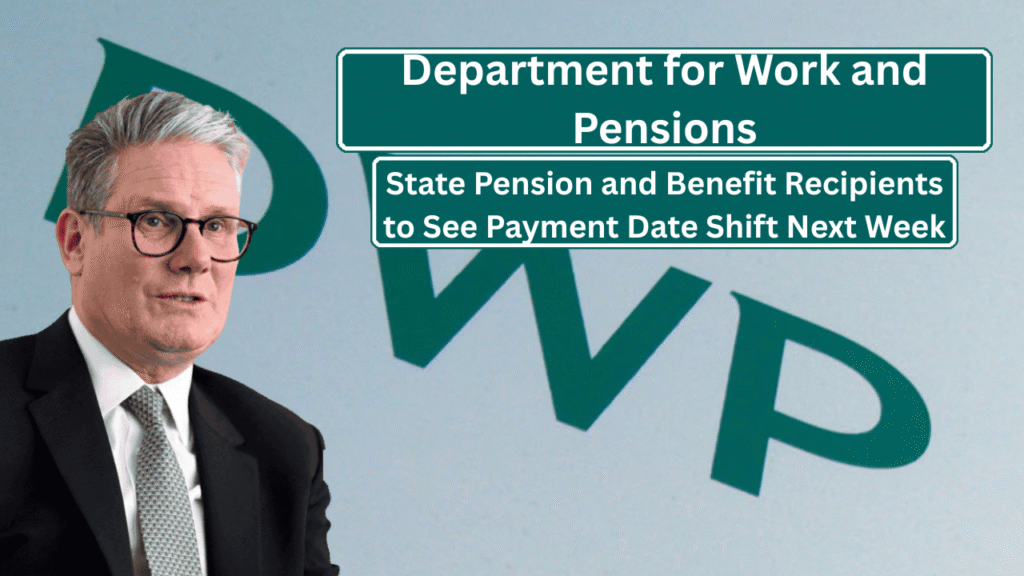Millions of UK residents receiving the State Pension and various benefits from the Department for Work and Pensions (DWP) are set to see changes in their payment dates next week due to the Spring Bank Holiday on Monday, 26 May 2025.
Early Payment Schedule
To ensure no one is financially affected by the long weekend, the DWP has confirmed that payments due on Monday, 26 May, will instead be made earlier-on Friday, 23 May.
This early payment change affects a number of benefits, including:
- State Pension
- Universal Credit
- Personal Independence Payment (PIP)
- Disability Living Allowance (DLA)
- Carer’s Allowance
- Employment and Support Allowance (ESA)
- Income Support
- Jobseeker’s Allowance (JSA)
- Child Benefit
Recipients should keep in mind that after this one-time change, subsequent payments will resume on the usual schedule. Planning ahead is advised, as the gap between this early payment and the next scheduled one may be longer than normal.
Understanding Your Payment Day
For those receiving the State Pension, regular payment days depend on the last two digits of their National Insurance number:
- 00 to 19: Monday
- 20 to 39: Tuesday
- 40 to 59: Wednesday
- 60 to 79: Thursday
- 80 to 99: Friday
However, when bank holidays occur, payment dates are moved forward to ensure recipients are not left waiting. This practice is standard during national holidays such as Easter, Christmas, and the May bank holidays.
Recent Increases in Benefit Payments
In addition to adjusted payment dates, recipients may also notice an increase in the value of their benefits due to annual uplifts.
- State Pension: The full new State Pension has risen from £221.20 to £230.25 per week. This 4.1% increase is part of the government’s triple lock policy, which ensures that the State Pension rises each year in line with the highest of inflation, average earnings growth, or 2.5%.
- Universal Credit and Other Benefits: Most other DWP benefits, including Universal Credit, have also increased by 1.7% as of 6 April 2025. However, due to the way Universal Credit is paid-in arrears-some claimants may only see this increase reflected in their May or June payments, depending on the timing of their assessment periods.
These adjustments aim to provide additional financial support to claimants during a time of rising living costs.
What to Do If You Don’t Receive Your Payment
If you are expecting a payment on Friday, 23 May, and it doesn’t arrive, it is recommended to wait until after the bank holiday to contact the DWP. Delays may occur due to the high volume of payments being processed.
If the payment is still missing after the holiday, recipients should contact the DWP through the appropriate helpline for their specific benefit. It’s helpful to have your National Insurance number and payment information on hand when calling.
Staying Informed
To avoid surprises and stay up to date on payment schedules, claimants are encouraged to regularly check official government sources, such as the DWP website. These sources offer updated calendars, benefit information, eligibility guidelines, and contact details for inquiries.
It’s also wise to sign up for email alerts or newsletters from government services to receive timely updates on changes in payment dates, benefit rates, and eligibility criteria.
Conclusion
Although temporary, the upcoming change in payment dates due to the Spring Bank Holiday is important for millions of recipients across the UK. Whether you’re receiving the State Pension or benefits such as Universal Credit or PIP, being aware of when your payment will arrive helps you better manage your finances.
With increases in benefit rates also taking effect, this month’s payments may be slightly more generous-another reason to review your upcoming payments and ensure everything is accurate. Being proactive, informed, and prepared ensures smoother financial planning, especially during holiday periods when government services operate on limited schedules.
If you’re unsure about your benefit status or need further help, contacting the DWP or visiting an official government service centre is always advisable.




